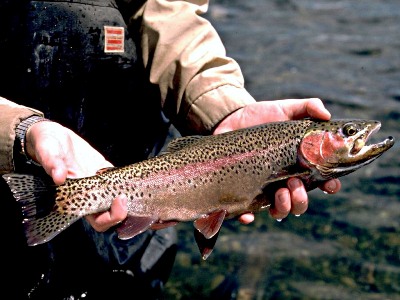
New York’s Department of Environmental Conservation (DEC) recently issued a reminder to anglers that, during the hot days of summer, it is important to remember that trout and salmon experience serious physical stress.
Heat stress can occur with these fish whenever water temperatures climb above 70° Fahrenheit.
“Anglers can do their part to help protect New York’s trout fisheries when planning warm weather fishing trips,” said DEC Commissioner Basil Seggos. “Heat-stressed fish in streams often seek pockets of cold water created by upwelling groundwater, small feeder streams, or water released from deep reservoirs. These refuges allow trout to avoid or recover from potentially fatal levels of heat stress. To protect these fish, DEC encourages anglers to avoid catch and release for trout and not disturb trout during hot days.”
According to DEC, anglers can help protect New York’s trout population by taking the following precautions:
- Avoid catch and release fishing for heat-stressed trout. Trout already weakened by heat stress are at risk of death no matter how carefully they are handled.
- Don’t disturb trout where they have gathered in unusually high numbers. It is likely these fish are recovering from heat stress in a pocket of cold water.
- Fish early. Stream temperatures are at their coolest in the early morning.
- Be prepared with a backup plan. Have an alternate fishing plan ready in case water temperatures are too high at the intended destination.
- Consider fishing a water body that is less prone to heat stress or fishing for a more heat-tolerant species like smallmouth bass.
Anglers are advised that when fishing tailwaters, like those below New York City water supply reservoirs, remember the cooling influence of reservoir releases will not extend as far downstream during periods of intense heat.
By paying attention to water temperatures and adapting fishing strategies to changing conditions, responsible anglers can help New York State’s trout and salmon to beat the heat.
source: New York Department of Environmental Conservation